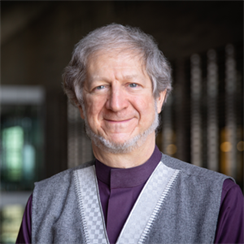Seminar: Efficient Computation through Tuned Approximation
Numerical software now tunes computation accuracy dynamically, saving memory, time, and energy. GPUs and lower precision arithmetic reduce "oversolving" in science, enhancing efficiency. Listen to Professor David Keys on efficient computation.
Tid: To 2024-05-23 kl 11.00 - 12.00
Plats: D2 room, Lindstedtsvägen 9, KTH Main Campus
Medverkande: Prof. David Keyes, King Abdullah University of Science and Technology (KAUST)
Abstract
Numerical software is being reinvented to provide opportunities to tune the accuracy of computation dynamically to the requirements of the application, resulting in savings in memory, time, and energy. Floating point computation in science and engineering has a history of “oversolving” relative to expectations for many models. So often are real datatypes defaulted to double precision that GPUs did not gain wide acceptance until they provided in hardware operations not required in their original domain of graphics. However, computational science is now reverting to employ lower precision arithmetic where possible. Many matrix operations considered at a blockwise level allow for lower precision and many blocks can be approximated with low rank near equivalents. This leads to smaller memory footprint, which implies higher residency on memory hierarchies, leading in turn to less time and energy spent on data copying, which may even dwarf the savings from fewer and cheaper flops. We provide examples from several application domains, including a look at campaigns in geospatial statistics and seismic processing that earned Gordon Bell Prize finalist status in, resp., 2022 and 2023.
Bio

David Keyes is Professor of Applied Mathematics and Computational Science and the Director of the Extreme Computing Research Center, having served as the Dean of the Division of Mathematical and Computer Sciences and Engineering at KAUST for its first 3.5 years. Also an Adjunct Professor and former Fu Foundation Chair Professor in Applied Physics and Applied Mathematics at Columbia University, and an affiliate of several laboratories of the U.S. Department of Energy, Keyes graduated in Aerospace and Mechanical Sciences from Princeton in 1978 and earned a doctorate in Applied Mathematics from Harvard in 1984. Before joining KAUST among the founding faculty, he led scalable solver software projects in the ASCI and SciDAC programs of the U.S. Department of Energy. Keyes works at the algorithmic interface between parallel computing and the numerical analysis of partial differential equations, with a focus on implicit scalable solvers for emerging architectures and their use in the many large-scale applications in energy and environment governed by conservation laws that demand high performance because of high resolution, high dimension, high fidelity physical models, or the "multi-solve" requirements of optimization, control, sensitivity analysis, inverse problems, data assimilation, or uncertainty quantification. He has named and contributed to Newton-Krylov-Schwarz (NKS), Additive Schwarz Preconditioned Inexact Newton (ASPIN), and Algebraic Fast Multipole (AFM) methods for large sparse linear and nonlinear systems arising from PDEs. Through the ECRC, he now works on meeting the requirements of drastic reductions in communication and synchronization, increases in concurrency for cores sharing memory locally, local load redistribution, and algorithm-based fault tolerance for these and other algorithms.

